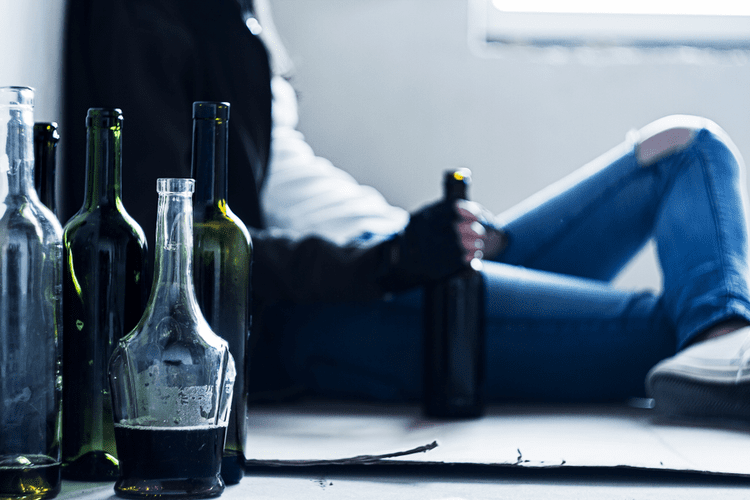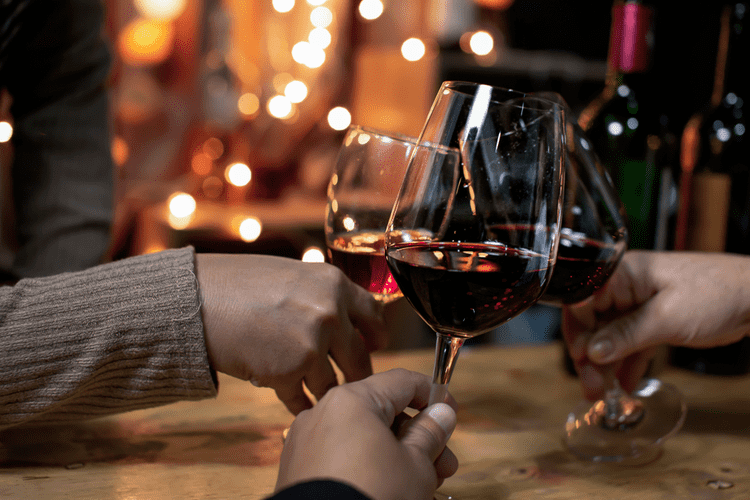Alcoholism Definition, Signs, Symptoms, Causes & Treatment
Content
First-degree relatives of individuals with alcohol use disorder are four to seven times more likely to develop alcoholism than the general population. Research has implicated a gene that, when inherited in a specific form, might increase a person’s chance of developing alcoholism. Withdrawal, for those physically dependent on alcohol, is much more dangerous than withdrawal from heroin or other narcotic drugs. Alcohol abuse and alcohol dependence are now grouped together under the diagnosis of alcohol use disorder. Do not consume alcohol in the seven days following your treatment. Alcohol is a diuretic, meaning it has dehydrating properties. Unfortunately, being dehydrated will slow your skin’s healing process drastically.
When you’re sober, your brain uses a process known as transfer encoding to turn sensory input into short-term memory. Your short-term memories are then converted into long-term memories via a similar process. Family members and friends might be angry with you for something that you’ve said or done while blacked out. You may have no idea of who you’re with, where you are, or how you’ve gotten there.
What Causes Alcoholic Hepatitis?
Running into furniture, falling into a something hard, or being struck by a flying object could all leave you with bruises. It is recommended NOT to ingest any alcohol 24 hours before the procedure. Some offices go as far as stopping for a whole week before. But we noticed that our clients compliance is much higher if we give reasonable instructions to do. It’s really the last hours that really matter, and that’s what we’ve been asking from our clients. Be careful during activities and avoid bumping the injured area.
People with alcoholism should receive supplemental thiamine , either by injection, IV, or orally. If thiamine is given in a timely fashion, this potentially devastating disorder can be completely reversed. In the emergency setting, thiamine is customarily given as an injection. Folate and magnesium are often given to individuals with alcoholism, as well. Often a family member or employer convinces or forces the person with alcoholism to seek medical treatment. Even if an alcoholism sufferer accepts treatment because of pressure from family, an employer, or a medical professional, he or she can benefit from it.
Refrain From Alcoholic Beverages After The Procedure
Your liver can begin to develop fatty deposits because of alcohol exposure, and that fat makes it harder for your liver to work effectively. If you keep drinking, your liver can swell, and cells within the liver can die. If the scarring is extensive, the liver may not be able to do its vital work. If you drink heavily, regularly, or both, your alcohol use could be the cause of your bruise. That discoloration sitting beneath the surface of your skin might prompt you to ask for help so that you can stop drinking for good. While you might expect alcohol to numb the pain after surgery, it can actually make your pain and discomfort worse.

It’s not likely, but it’s possible that your bruises are a sign of bloodcancer, such as leukemia. If you also feel tired, achy, and weak all the time, or lose weight without trying to, give your doctor a call. We don’t mean you woke up with a black-and-blue mark because you bumped into something after one too many cocktails. But if you often drink a lot of alcohol and you tend to bruise easily, it may mean you’ve got liver problems. However, even if you’re not going through major surgery, drinking before a minor surgery can be dangerous. Excessive bleeding can obscure the work a doctor is doing, covering the area in blood.
Do You Bruise Easier When Drunk?
Sometimes, heavy drinking over a short period, even less than a week, can cause this. There are normally no symptoms, and this stage of the disease is often reversible if the individual abstains from alcohol from this point onward. This can help to reverse some can drinking cause bruising early stages of liver disease. For example, stopping drinking once diagnosed with fatty liver disease may be able to reverse the condition within 2 to 6 weeks. The early signs of alcoholic liver disease are vague and affect a range of systems in the body.
- Avoid drinking alcohol at least 24 hours prior to treatment and the night of your treatment.
- Corticosteroids can help relieve severe liver inflammation and are safe to use if people do not have an infection, bleeding in the digestive tract, kidney failure, or pancreatitis.
- Although it is well-known that smoking causes premature skin aging, you may not realize that when it comes to heavy consumption of alcohol skin wrinkles are also a risk.
- It is generally recommended that these medications be used in conjunction with alcoholism counseling.
- Alcoholic individuals often have elevated liver function tests, which indicate liver damage.
In severe cases, thrombocytopenia may cause internal bleeding and brain hemorrhage. Some autoimmune conditions, such as rheumatoid arthritis and lupus, may cause unexplained bruising. Although anyone can experience a vitamin K deficiency, it is more common in infants, as breast milk does not contain much of this nutrient. Symptoms of scurvy include bleeding issues that may lead to bruising. The following are a few of the possible conditions that may cause random bruising to appear on the legs. Sometimes, however, bruising is a symptom of a more significant health issue. Most of the time, bruising occurs when a person bumps into things, falls, or injures themselves in another way.
Treatment Options For Alcoholic Hepatitis
The big bruises you get from smacking into something like a door frame may be sore for a few days, but minor bumps and bruises aren’t likely to be dangerous. However, the vasodilating effects of alcohol can make injuries more dangerous.
Passionist Sisters seek to renew dignity for women in Buenos Aires’ poorest slums – Global Sisters Report
Passionist Sisters seek to renew dignity for women in Buenos Aires’ poorest slums.
Posted: Thu, 17 Mar 2022 08:10:53 GMT [source]
If you’ve been a sun worshipper all your life, you may notice your skin bruises more easily. That’s because over time, the sun slowly weakens your skin and the tiny blood vessels underneath it.
Comprised of therapists, clinicians, and recovery advocates, we strive to deliver quality content on relevant and helpful topics. Often referred to as “liquid courage”, alcohol provides a false sense of confidence. People may feel more socially competent and outgoing when they drink. In short, your brain logs what you see, hear, smell, and do. This helps you remember where you’ve been, who you’ve spoken to, and the actions you’ve taken.
Lastly, he obtained graduate education in public health and business administration to contribute to national healthcare reform research and implementation. Having the restraint to consume only moderate amounts of alcohol may be challenging for some individuals.
Health Conditions
This isn’t usually a major concern unless it’s extensive or there’s marked discoloration. Red flag signs include a large amount of visible blood loss in the urine, stool, vomit, or from some physical injury. Seek medical care promptly to stop the bleeding and provide resuscitation as needed.
This is because if you develop a yellow skin tone, this is sometimes a sign of jaundice, indicating that heavy alcohol use has already damaged your liver. Instead of covering up a yellow hue, you should always seek medical advice and investigate treatment options to help you give up your habit. Another problem that develops with alcohol and your skin is that it can cause flare ups of skin conditions that you may already have, which is particularly true of rosacea Alcoholism in family systems and psoriasis. Rosacea affects around 16 million Americans and is characterized by redness across your cheeks, chin, forehead and nose, though can spread to affect your ears, scalp and chest. With time blood vessels appear in rosacea, so it is no surprise that alcohol can exacerbate the problem. However, if left untreated, excess tissue grows in the form of bumps across affected areas, which can have a significant impact on your confidence and self-esteem.
Often the drinking behavior is concealed from loved ones and health-care professionals. You should not apply ice to the treatment area or use it near the treatment area. Ice will impede the natural inflammatory process that your skin needs for healing. For the same reason, you should avoid herbal supplements used to fight inflammation, such as arnica supplements and bromelain . You should also avoid drinking pineapple juice and eating pineapples during the first week after treatment so you don’t consume too much bromelain. Just as you should avoid picking your skin so it can peel naturally, you should also avoid over-moisturizing your skin during the natural peeling process. If you over-moisturize your skin, it will take longer to peel and you will reduce the rate at which you see the final results of your collagen induction therapy treatment.

While heavy drinking is a risk factor for cancers that affect your mouth and digestive system, you may not know that your alcohol intake can also influence your risk of skin cancer. Although it is well-known that smoking causes premature skin aging, you may not realize that when it comes to heavy consumption of alcohol skin wrinkles are also a risk.
Over time, this can lead to drinking more to increase the pleasurable feelings that alcohol provides and to overcome any developing physical tolerance to alcohol. Many people who regularly drink, and experience significant personal and social consequences as a result, often have a hard time admitting that they have drinking problems. People who routinely binge drink have the highest likelihood of experiencing blackouts, but blackouts can occur anytime the body’s blood alcohol content is extremely high. Blackouts typically occur after a person’s BAC has reached or exceeded 0.22 percent. Although experiences with blackouts can vary significantly from one individual to the next. At this stage, the person has taken too much of a liking to alcohol.

